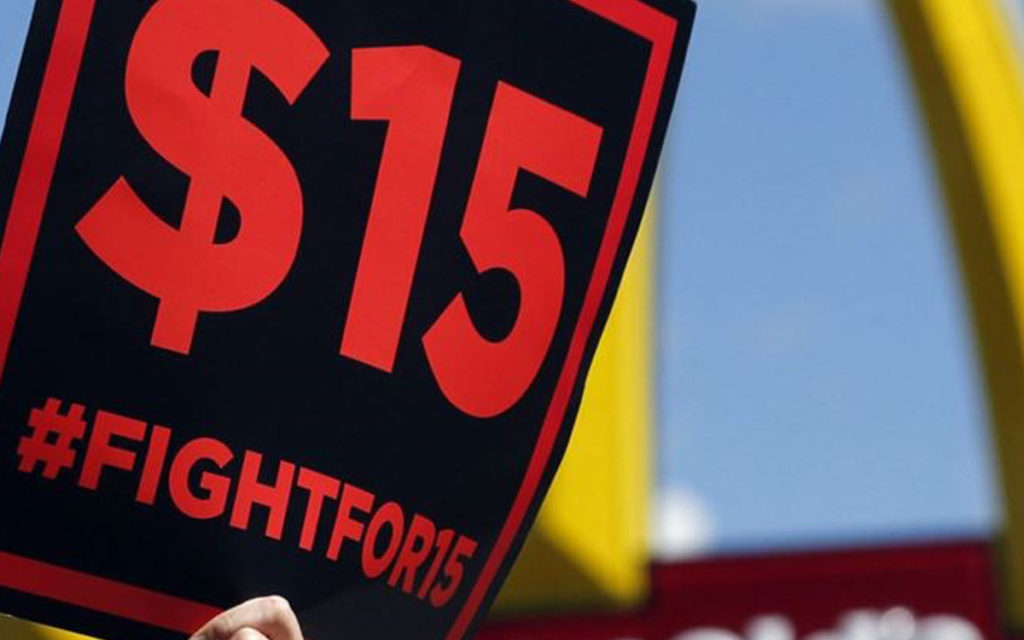
For many people, it is an unquestionable fact that a higher minimum wage is an effective tool to alleviate poverty. After all, it makes perfect sense that paying more to minimum wage earners is bound to improve their standard of living. Or does it? A review of the many studies that have been done on the issue show that the results of a minimum wage hike are considerably more complex than they initially appear, and by no means all positive.
Consider a study that came out just this week from The Fraser Institute which focused on Ontario. The study found that fully 91 per cent of minimum wage earners in the province did not live in low income households based on data from 2015, the most recent year available. In addition, almost 60 per cent of minimum wage earners were under 25 years old, of whom 86 per cent lived with family. As far as that single parent with young children the politicians always like to talk about, only 2.1 per cent of minimum wage earners fall into that category.
Furthermore, there is a great deal of evidence that minimum wage hikes actually hurt the very people they are supposed to help. When the Ontario minimum wage was increased from $11.60 per hour to $14.00 at the beginning of 2018, employment statistics showed a sharp drop in part-time job availability. Many businesses found themselves cutting back on the hours they were open for business, lowering their staff complement, reducing non-wage benefits or automating their operations which permanently eliminated jobs. Some businesses closed entirely, especially in rural areas where profit margins are slim to begin with and the cost of living is lower than in urban centres. Most businesses also had to raise their prices to varying degrees, so the wage increase was passed on in whole or in part to consumers, low income and otherwise.
Overall, minimum wage increases are a very blunt and ineffective policy instrument to address poverty. So why do some governments, unions and others continue to promote it so strenuously? For governments it is an easy cop-out to pretend they are helping the poor when they are merely foisting added cost onto business and disrupting the labour market in the process. For unions, many collective bargaining agreements are linked with minimum wages in some way, so that when the minimum wage increases the union worker already making a hefty income also gets a wage increase. Supporters of minimum wage increases often claim they have very little if any impact on reducing employment opportunities. It is pretty ironic that the same groups who advocate increasing the prices of tobacco products, alcohol, gasoline, etc. because it will curtail demand also believe increasing the price of labour will have no effect on labour demand. The labour market is no more exempt from the law of supply and demand than any other market, and wishing it were so doesn’t change that fact.
The bottom line is there are much better ways to assist the working poor without the damaging impacts of minimum wage increases. Incoming Premier Doug Ford has committed to eliminating income tax for lower income workers, which is a sensible way to target help to those who actually need it without destabilizing labour markets and inviting many negative unintended consequences such as job loss, price hikes and business closures. Proponents of higher minimum wages who claim they will “lift all boats” need to more closely examine the real life impacts of this policy, and acknowledge the old adage that, if it sounds too good to be true, it probably is.

She has published numerous articles in journals, magazines & other media on issues such as free trade, finance, entrepreneurship & women business owners. Ms. Swift is a past President of the Empire Club of Canada, a former Director of the CD Howe Institute, the Canadian Youth Business Foundation, SOS Children’s Villages, past President of the International Small Business Congress and current Director of the Fraser Institute. She was cited in 2003 & 2012 as one of the most powerful women in Canada by the Women’s Executive Network & is a recipient of the Queen’s Silver & Gold Jubilee medals.




















